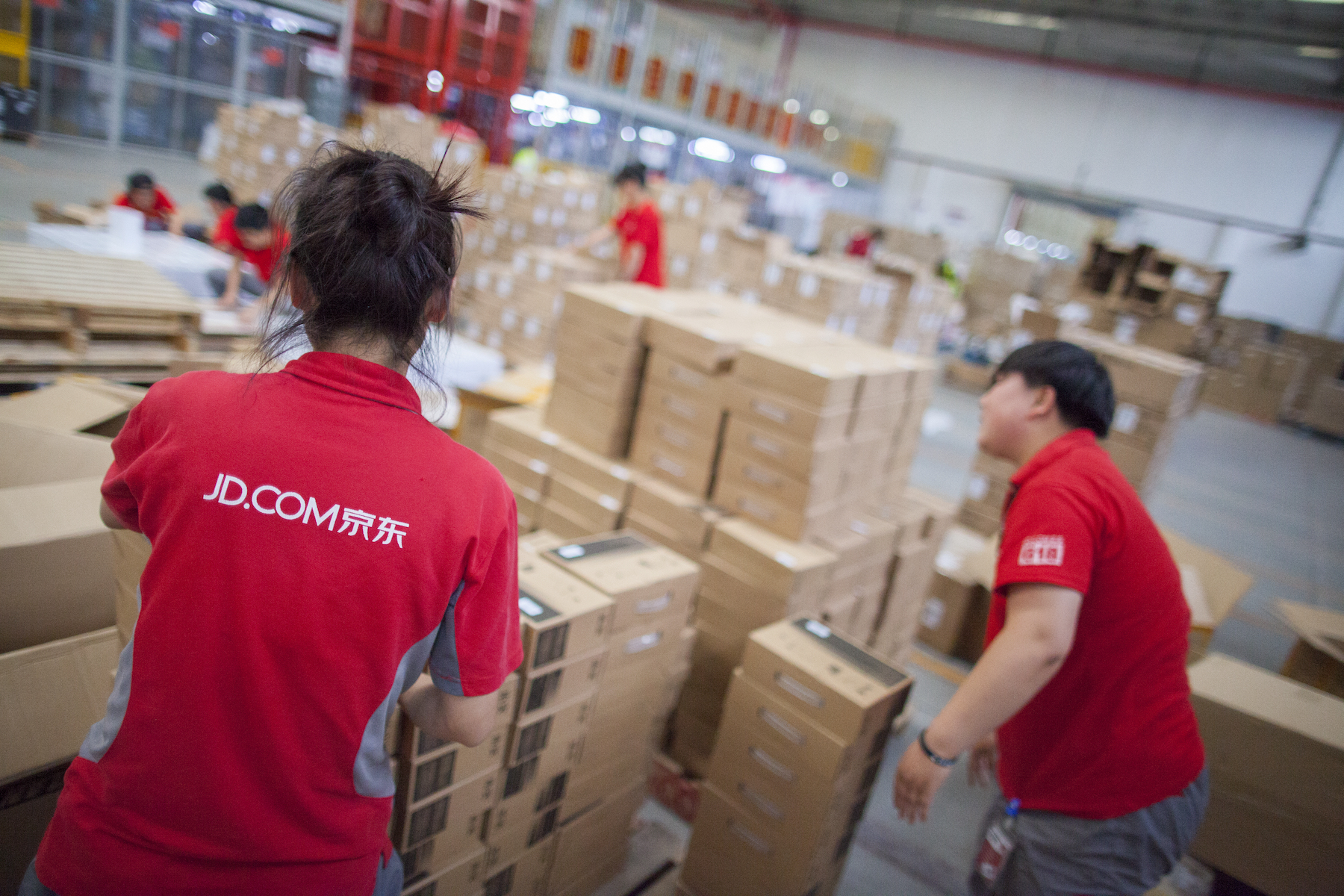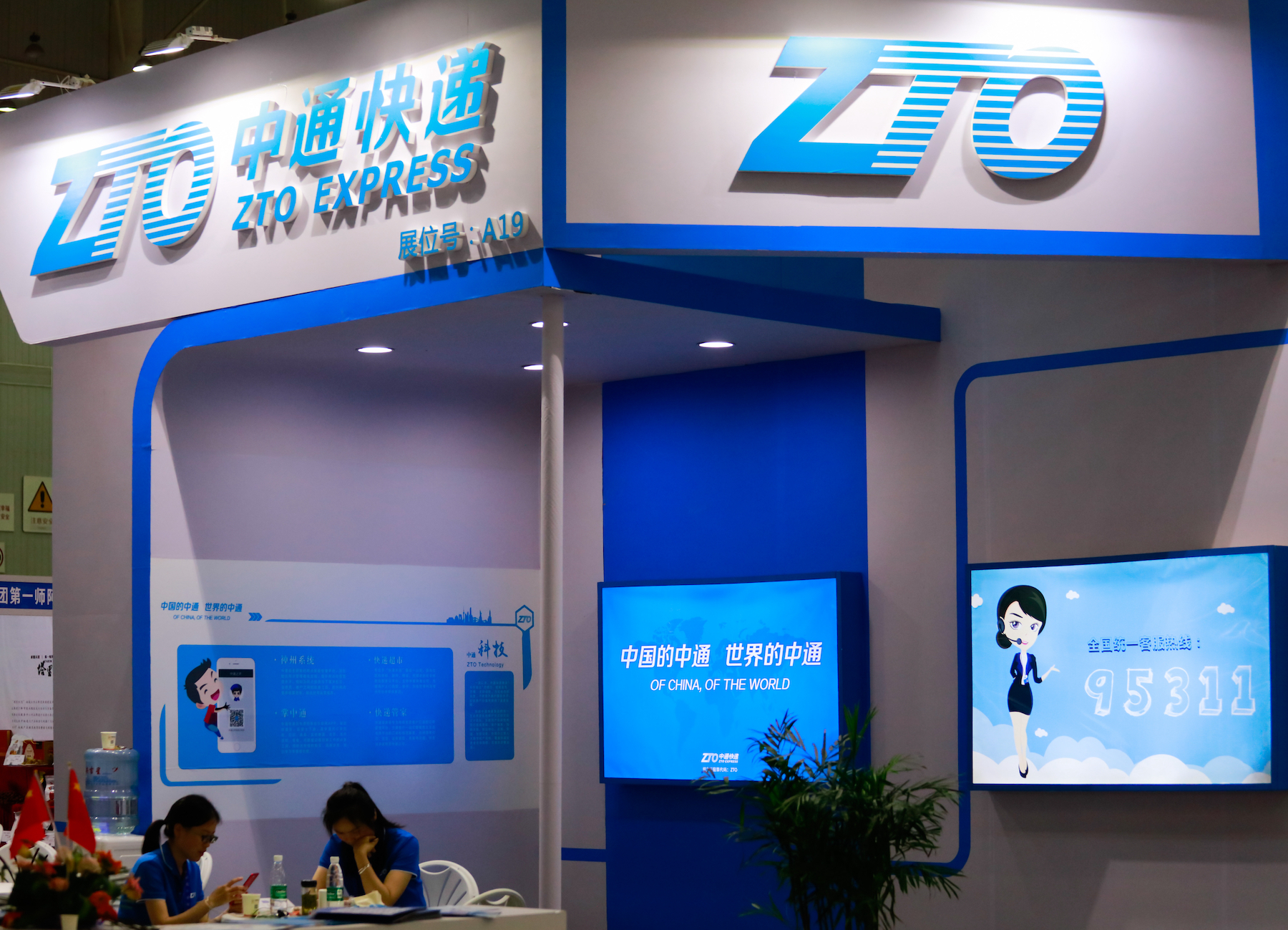In this series, CLB investigates cases of platform workers to raise the specific challenges and potential solutions for how China’s official trade union could represent them, both individually and as a sector. Read more here.
- A package courier posted on a government message board that he was owed wages by the local delivery hub and was made to register as a “self-employed worksite” that should invoice the company to receive pay. He asked the authorities to resolve this systemic issue in the courier industry.
- The government responded by identifying which legal entity owed the wages and ensured the worker was paid, but not before chiding the worker for filing a “false complaint” against the wrong entity. The local authorities have not made moves to regulate widespread business practices that disadvantage platform workers.
- Complex labour relationships make it difficult for workers and enforcement authorities to implement China’s labour laws and regulations, letting businesses off the hook at the expense of workers.
On 30 October 2022, an express delivery worker in Suqian, Jiangsu province, wrote on the public, online message board to the Sihong county party secretary:
I work for a delivery hub that is a subcontractor of [redacted] Express Delivery. The boss has not paid our wages for October 2022 and is forcing us all to register as “self-employed independent contractors.” He wants us to issue an invoice to him as contractors and then he will pay us back. Leaders, please help correct this wrongdoing.
Platform workers in China have long been denied formal labour relationships, but there is a recent rise in having workers register as independent contractors. This means that the platform companies and the local delivery hubs all avoid the labour costs and dodge liability for workers’ injury or death on the job.
The labour relationships on paper may seem confusing, but workers themselves are quite clear about who they work for and where they are working, and that they deserve to be paid in full and on time by the entity that manages their daily work.

Photograph: XiXinXing / Shutterstock.com
The Sihong county labour department, to their credit, intervened in this case and solved the wage arrears problem, according to their 15 December reply to the original post:
With regard to the above complaint, the labour inspectorate at our bureau checked and found this is a false complaint. We found that the named delivery hub signed a contract with another transportation hub in Sihong county, which clearly stated that the transportation hub is responsible for employing workers. Hence the delivery company complained about is not liable at all. Further, we coordinated with the transportation hub and solved the wage problem. In our call to the complainant on 15 December 2022, we confirmed that a total of 30,000 yuan owed wages were paid, and the workers were satisfied.
Prior to the labour department’s reply to the worker’s message, China Labour Bulletin contacted Suqian municipal trade union on 3 November 2022, to see if the union could intervene to help workers in this case or even bargain with delivery companies about worker classification in their city. However, it was not a union official who answered the phone, but one of the union’s outsourced lawyers. The lawyer told CLB that all the union officials were participating in a three-day meeting off-site, so there was no one to help workers at that time.
We conversed with the outsourced lawyer a bit more and found that a union official once asked her for legal advice on whether a delivery worker should register as a self-employed contractor or not; the lawyer’s own advice in that case was that workers should not be required to do this:
I've read such an agreement between that courier and the manager of the delivery hub he contracted with. There is actually a labour contract relationship. And now, the hub is requiring him to register as a self-employed, independent contractor, probably to avoid that labour relationship. It is not required that they must register as contractors before doing this courier work. I told the union official that couriers do not need to register as contractors.
Jiangsu province leads the country in the express delivery industry and unionisation of couriers
The official reply from the labour department confirms that not only were workers owed wages, but also that complex subcontracting relationships among different corporations disguises which entity holds legal duties toward workers. The allegation of a “false complaint” stems from this unnecessary complexity and contributes to the systemic issue for which the worker requested a resolution: whether it is lawful for them to be categorised as independent contractors and whether any formal labour contract they have previously signed covers benefits such as social security that will be lost in the new arrangement.
Although the labour department has treated this as an isolated incident involving this group of workers related to the online post, the trade union is in a prime position to advocate for workers’ interests and make policy recommendations regarding express delivery workers’ legal categorisation. In fact, the recently-implemented regulations on collective negotiations in Jiangsu province will take effect in May 2023, and this is a prime opportunity for the union to step up its efforts, starting with platform workers.
Jiangsu province is well-known for its prowess in the express delivery industry. Along with Guangdong, Zhejiang, and Shanghai, Jiangsu is home to major courier companies, and these companies also see a large volume of business in these areas. Jiangsu, specifically, has an express delivery enterprise association with more than 200 companies as members. In terms of worker organising, Jiangsu declared in November 2021 that all cities in the province had established express delivery sectoral unions, including Suqian city where the worker complaint on the message board was lodged.

Photograph: humphery / Shutterstock.com
Further, in December 2022, Jiangsu hosted express delivery industry collective negotiations among major cities in the province, and more than a dozen collective agreements were signed at the municipal and county levels in Jiangsu. These agreements purport to cover over 100 thousand delivery workers at 467 companies. Again, Suqian city is among the list that has a collective agreement for express delivery workers.
CLB could not reach the worker who wrote the online message, but we were able to contact a local delivery outlet in Sihong county. The person answering the phone said he is a manager of the express outlet that has over 40 workers. He said that at his outlet, wages were paid on time and workers were not considered independent contractors; they all had labour contracts with social security benefits. Although working as a manager, he told us he was a member of the local express delivery sectoral union but considers himself a labourer for the boss.
We have no way to confirm if the worker who wrote the online message was covered by the collective agreement or even if he had been recruited to join the union. We are also unable to confirm if the worker sought assistance from the union. But based on his circumstances and that he felt forced to register as an independent contractor, we can assume these answers are negative, or that at most these union efforts are meaningless in practice.
China’s official trade union has room to improve in how it responds to workers’ rights being violated by questionable corporate practices
Defending workers’ rights is a stated objective of China’s official union. However, the union's understanding of rights protection is often equated with outsourcing lawyers, and the union is out of touch with workers, as CLB has found in our numerous investigations. We have long recommended for the union to get out in front of major labour issues facing different categories of workers, to no avail.
In Suqian, however, the workers’ rights have already been violated, and mechanisms are said to be in place to help express delivery workers, specifically. Apparently, the Suqian municipal union and sectoral unions’ achievements on recruiting workers and signing collective agreements in the express delivery industry do not reach down to the level of workers. The Suqian municipal and Sihong county unions should take notice that workers and companies have competing perspectives on bearing labour costs and providing labour rights, and should take up the new provincial regulations on collective negotiations as an opportunity to represent workers’ interests.
There is much that the union should do to organise workers and understand their needs, and then raise these issues in collective negotiations to improve workers’ rights and interests. For example, we recommend that the union relevant to this case identify the responsible company and initiate negotiations on behalf of workers about their labour classification.
Further CLB reading:
- What You Need to Know About Workers in China: Platform economy (November 2022)
- In aftermath of price wars in express delivery industry, pay rates for couriers still paltry (November 2022)
- CLB Report: Waiting for Weiquan: Worker rights protection at the All-China Federation of Trade Unions (August 2022)
